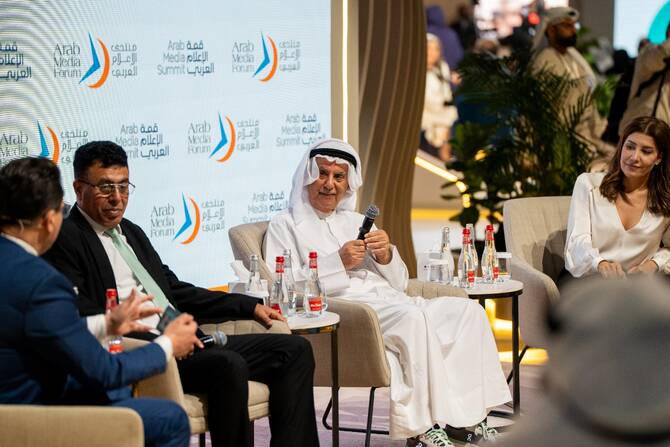
- ARAB NEWS
- 16 Jul 2025

DUBAI: Speaking at the Arab Media Summit on Tuesday, prominent Arab journalists and lawmakers — including Emad El-Din Hussein, Paula Yacoubian, and Mohammed Al-Rumaihi — called for urgent media reform to confront growing political fragmentation and foster greater unity across the Arab world.
“Whether we like it or not, the world changed after Oct. 7, 2023,” said Hussein, editor-in-chief of the Egyptian daily Al-Shorouk. “I am proud to stand with the Arab League, but we are deeply divided.”
Hussein spoke during a panel alongside Yacoubian, Lebanese journalist and member of parliament, and Al-Rumaihi, Kuwaiti author and sociology professor.
“For the first time in the Arab world, we’re witnessing significant transformation,” said Yacoubian. “We are beginning to build our own foundation.”
While acknowledging developments such as the Syrian Arab Republic’s tentative steps toward stabilization, and the formation of a new Lebanese government, the panelists underscored persistent structural challenges across the region.
“The Israeli dream is to divide Syria — so what are Arabs doing in response?” Yacoubian asked, pointing to regional inaction and disunity.
Each panelist offered a distinct perspective on the root causes of the Arab world’s instability.
“Political Islam and the manipulation of religion remain among the most serious internal conflicts we face,” said Al-Rumaihi.
Hussein echoed this sentiment: “Political Islam is the biggest threat we face today. While many talk about solutions, few are willing to diagnose the real disease.”
Despite differing viewpoints, the panelists agreed on one point: media and education must be at the heart of efforts to heal political rifts.
“Arab education is classical,” Al-Rumaihi noted. “We need to provide an education to give people immunity against anything the media says.”
Hussein added: “Many can’t comprehend the evolving language of today’s youth. The Arab world remains in the dark, and our leaders are enabling this. Without free media, we cannot survive.”